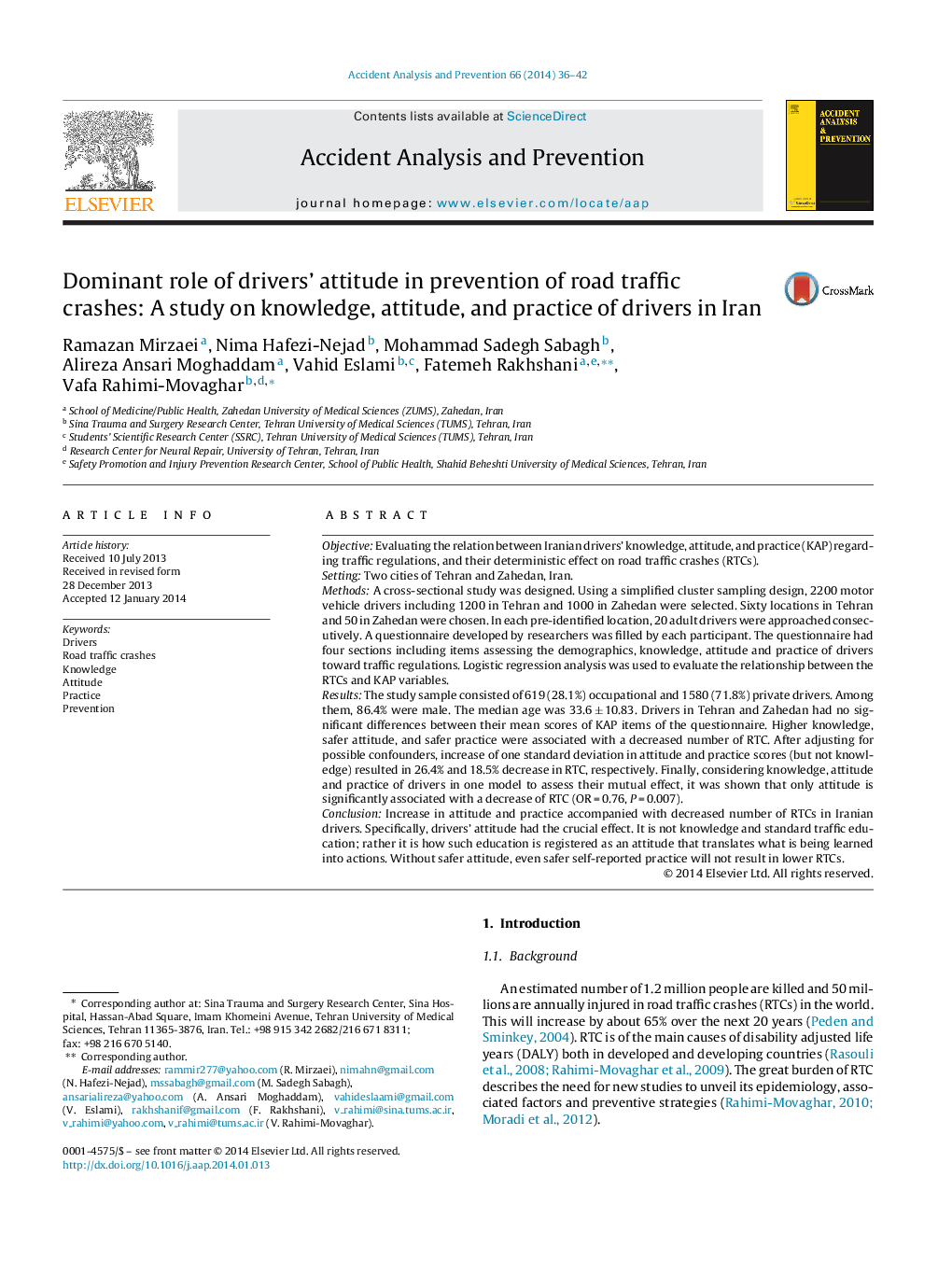| Article ID | Journal | Published Year | Pages | File Type |
|---|---|---|---|---|
| 572367 | Accident Analysis & Prevention | 2014 | 7 Pages |
•Higher knowledge, attitude, and practice were associated with a decreased rate of RTC.•Obtaining safer attitude has the crucial effect on preventing the RTC.•Without safer attitude, self-reported behavior will not decrease the rate of RTC.•Proper attitude should be considered in educational and training programs.
ObjectiveEvaluating the relation between Iranian drivers’ knowledge, attitude, and practice (KAP) regarding traffic regulations, and their deterministic effect on road traffic crashes (RTCs).SettingTwo cities of Tehran and Zahedan, Iran.MethodsA cross-sectional study was designed. Using a simplified cluster sampling design, 2200 motor vehicle drivers including 1200 in Tehran and 1000 in Zahedan were selected. Sixty locations in Tehran and 50 in Zahedan were chosen. In each pre-identified location, 20 adult drivers were approached consecutively. A questionnaire developed by researchers was filled by each participant. The questionnaire had four sections including items assessing the demographics, knowledge, attitude and practice of drivers toward traffic regulations. Logistic regression analysis was used to evaluate the relationship between the RTCs and KAP variables.ResultsThe study sample consisted of 619 (28.1%) occupational and 1580 (71.8%) private drivers. Among them, 86.4% were male. The median age was 33.6 ± 10.83. Drivers in Tehran and Zahedan had no significant differences between their mean scores of KAP items of the questionnaire. Higher knowledge, safer attitude, and safer practice were associated with a decreased number of RTC. After adjusting for possible confounders, increase of one standard deviation in attitude and practice scores (but not knowledge) resulted in 26.4% and 18.5% decrease in RTC, respectively. Finally, considering knowledge, attitude and practice of drivers in one model to assess their mutual effect, it was shown that only attitude is significantly associated with a decrease of RTC (OR = 0.76, P = 0.007).ConclusionIncrease in attitude and practice accompanied with decreased number of RTCs in Iranian drivers. Specifically, drivers’ attitude had the crucial effect. It is not knowledge and standard traffic education; rather it is how such education is registered as an attitude that translates what is being learned into actions. Without safer attitude, even safer self-reported practice will not result in lower RTCs.
